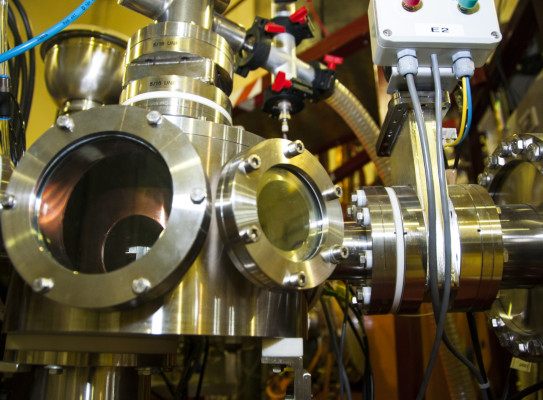
Materials for a low-carbon future

In this programme, we execute research projects to give effect to our Energy Futures theme.
Overview
‘Materials for a low-carbon future’ is an SSIF-funded programme led by GNS Science. Our projects are renewed every year and are responsive to the changing needs of community, industry and Government.
This programme aims to
- Conduct research that helps lower global emissions, such as developing new materials and modifying surfaces for energy-efficient power generation and food processes
To achieve this aim
- We execute various projects (see below), which are renewed every year and are designed to respond to the changing needs of industry, the community and government
Developing more durable, cost-effective and sustainable materials
This is the energy materials component of the GNS Science SSIF programme. In this programme we execute research to give effect to our Energy Futures theme. Our projects are renewed every year and are responsive to the changing needs of community, industry, and Government. If you have materials challenges in the energy and carbon reduction space, then please get in touch.
Current projects
New energy materials modification techniques
Lead: John Kennedy
We are continuously improving our systems and techniques to contribute to the global effort of developing new materials to meet the challenge of low emissions energy systems. We specialise in thin film synthesis and ion beam modification techniques and contribute this as a rapid prototyping package for local and international collaborators.
We are experts in applied materials science, making and testing new materials formulations. Our focus this year is to develop stronger connections with computation materials scientists and engineers and develop greater computational capability in-house. The combination of computational materials development and rapid prototyping and testing will accelerate new materials development and ultimately deliver new energy technology solutions.

Energy efficient industrial products and systems
Lead: Jérôme Leveneur
We have become experts in applying our ion-beam and sputtering systems as surface modification techniques. We do this to change the way fluids interact with solid surfaces. This year we are building on previous work on surface modification for heat exchangers to develop new surfaces for actively wicking fluids. Here we are using gradients of wettability to move droplets on surfaces.
Catalytic materials for CO2 capture and carbon upcycling
Lead: Vivian Fang
Catalytic materials have been a focus area for our team and our two large hydrogen research programmes recently spun out of this project. With this success we are now refocussing on catalysts for conversion of carbon dioxide into new products. This begins with C1 chemicals that have a single carbon atom, that can be converted into a wide range of organic molecules for fuels, chemicals, and materials.

Materials for enhanced geothermal energy
Lead: Peter Murmu
This is a new project within the MLCF seeking to understand how materials science can contribute to improving the performance and sustainability of geothermal energy, for electricity generation and direct use. This year we are scoping the opportunities of improvement and knowledge gaps to provide a foundation for targeted research projects in future years. Areas of interest at the moment are materials to harvest electricity from low temperature geothermal sources and materials for capturing CO2 from geothermal fluids and plant to reduce the greenhouse gas emissions from geothermal use.


Research project details
Duration
Ongoing
Funding platform
Strategic Science Investment Fund (SSIF)
Status
Current
Programme leader
Dr Murray McCurdy
Funder
Ministry of Business, Innovation & Employment (MBIE)